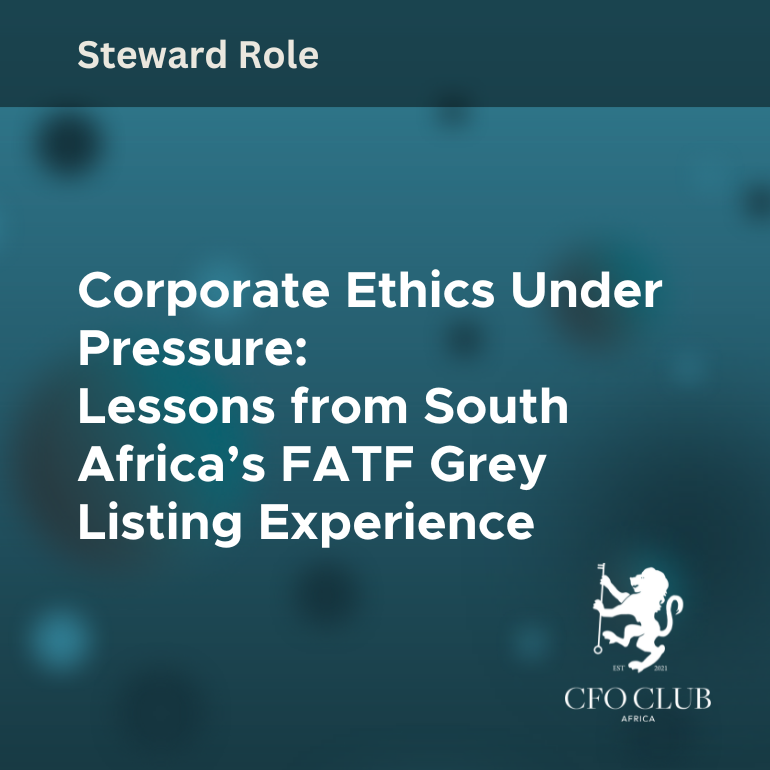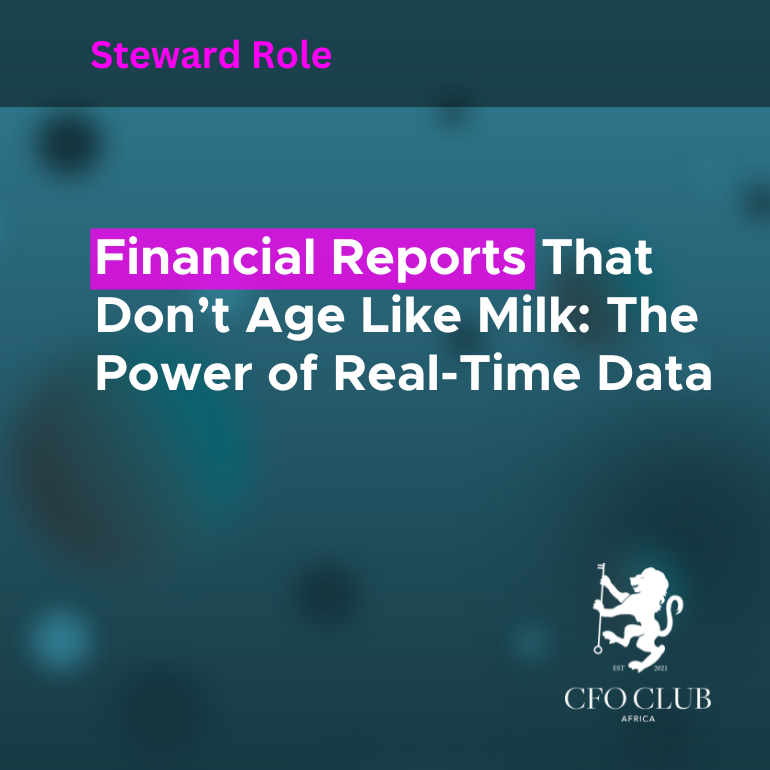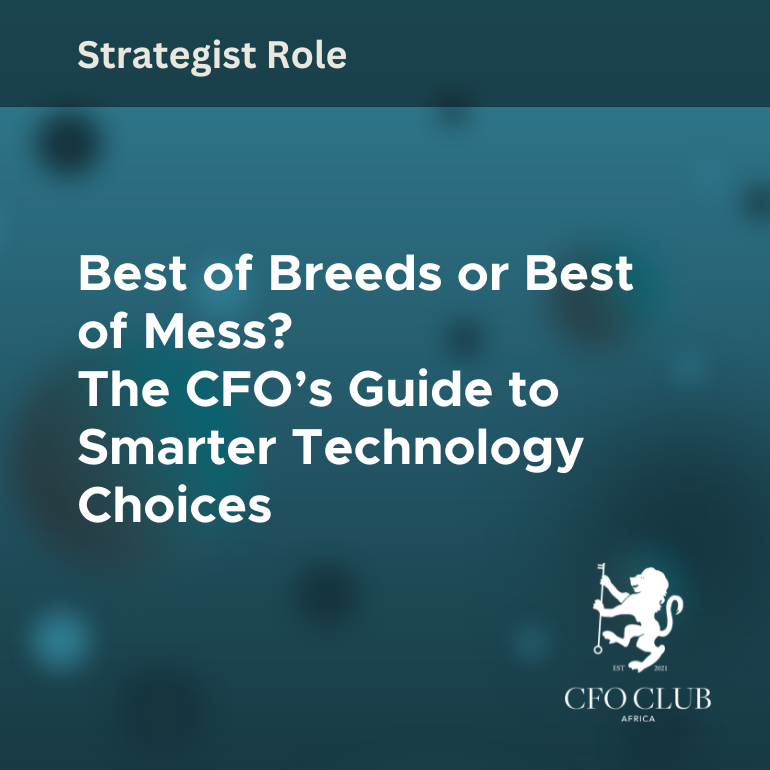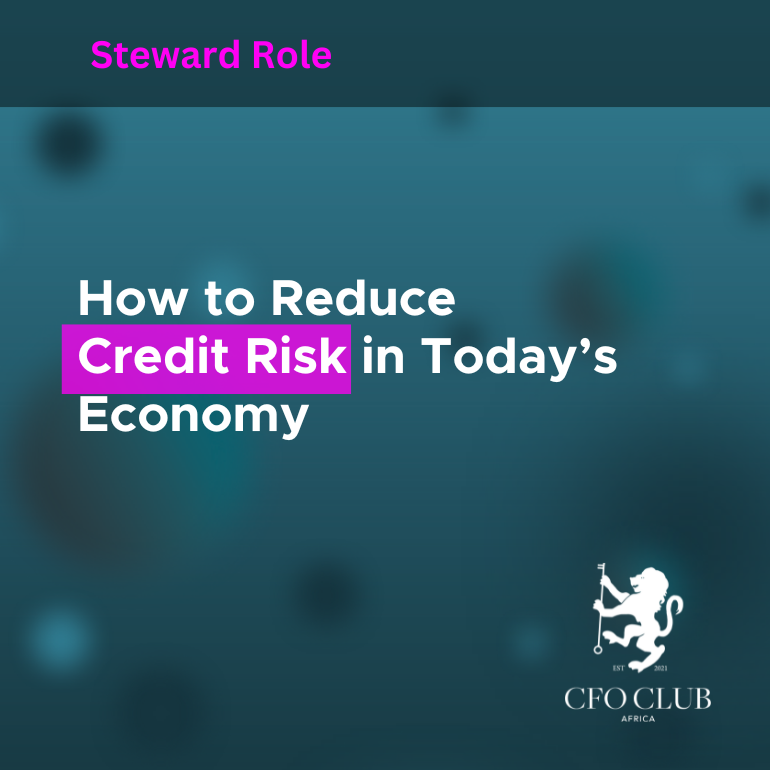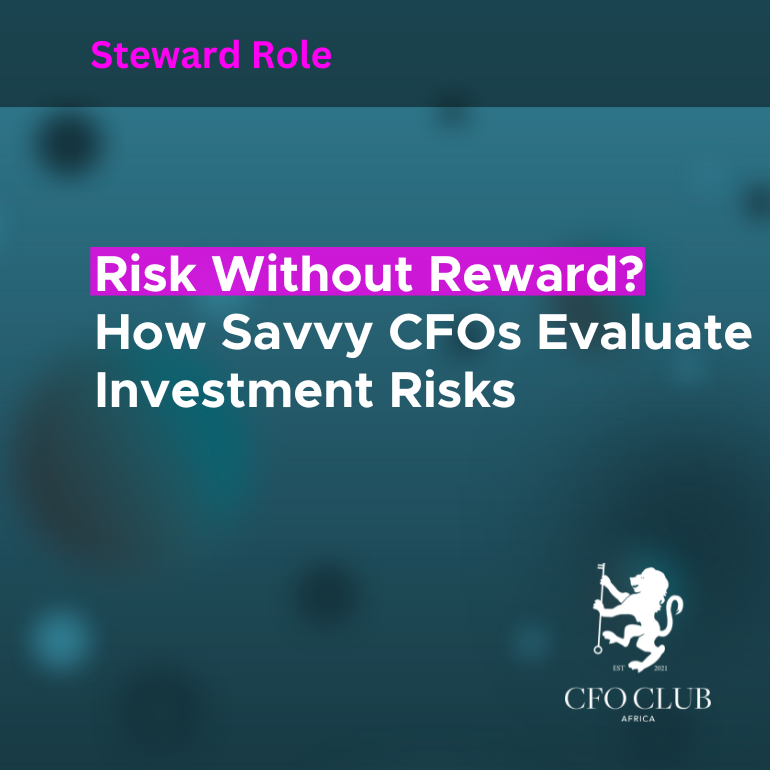Corporate Ethics Under Pressure: Lessons from South Africa’s FATF Grey Listing Experience
Ethics in business has never been an abstract idea in South Africa. It is survival. Every time the country’s governance systems are questioned, the cost of doing business rises, credit ratings falter, and investors grow cautious. The Financial Action Task Force (FATF) grey listing in 2023 was one such moment—a wake-up call that revealed how deeply integrity shapes economic opportunity.
Now, as South Africa continues to work toward rebuilding credibility, CFOs and finance leaders face a simple truth: corporate ethics cannot be separated from economic performance. Governance failures are not just moral lapses. They are financial risks.
Ethics Meets Economics
When FATF placed South Africa on the grey list, it was not only a regulatory concern but a statement about trust. It told the world that the systems protecting financial integrity were not working as intended. The result was slower cross-border transactions, higher compliance costs, and reduced investment inflows.
Ethical leadership, therefore, is not a matter of public relations. It is a core component of competitiveness. Investors and trading partners look for assurance that their money will not be lost to corruption, negligence, or weak internal controls. CFOs who demonstrate this assurance through sound governance and transparent financial management help unlock opportunity for their companies and for the economy at large.
In essence, ethical strength is not a moral luxury. It is a financial strategy.
Pressure Reveals Priorities
Scandal and scrutiny have a way of showing what organisations truly value. Under pressure, ethics either rises to the surface or collapses under the weight of convenience. The FATF experience has forced both the public and private sectors to ask difficult questions: Are our controls designed for compliance, or are they built for credibility? Are we acting to meet minimum standards, or to create lasting trust?
These questions are not just for government institutions. Corporate South Africa faces the same dilemma. When cash flow is tight and boardrooms are tense, ethical shortcuts often appear tempting. But shortcuts in governance rarely stay hidden for long. They emerge later as restatements, legal penalties, or reputational damage.
CFOs must be the counterweight to that pressure. They are uniquely positioned to enforce ethical boundaries that cannot be bent for profit. Their judgment defines the line between business resilience and systemic risk.
The CFO’s Line of Defence
In today’s environment, CFOs sit at the intersection of money, accountability, and ethics. This role makes them both watchdog and strategist. Their ethical decisions are not confined to approving transactions or signing audit reports. They influence how risk is defined, how suppliers are vetted, and how resources are deployed.
An ethical CFO asks different questions. Not “Can we do this?” but “Should we?” Not “Will this pass the audit?” but “Would this survive public scrutiny?” Such thinking sets the tone for the organisation. When finance leaders demand transparency, others follow.
The finance function must therefore move beyond control to culture. Ethical policies are effective only when they are lived, not laminated. CFOs can strengthen this culture by ensuring consistent due diligence, promoting ethical procurement, and encouraging internal reporting without fear of retaliation.
Rebuilding Trust One Decision at a Time
Reputation repair is slow, but possible. The path forward for both South Africa and its businesses lies in consistent demonstration of ethical intent.
Transparency must become habitual. CFOs should communicate clearly about financial challenges, governance risks, and the steps being taken to correct them. Silence or defensiveness often signals avoidance, even when unintentional. Open communication, on the other hand, earns respect.
Consistency matters even more. Investors can forgive poor performance more easily than inconsistent principles. When ethical standards fluctuate based on profit or politics, credibility vanishes. Maintaining integrity through both prosperity and hardship creates resilience that outlasts market cycles.
Accountability remains the ultimate test. Ethical lapses must have consequences, not cover-ups. CFOs can lead by example by enforcing accountability within their teams and insisting that ethical breaches are addressed swiftly and visibly.
Compliance as an Asset
South Africa’s efforts to address FATF’s concerns have shown that regulatory compliance, if done properly, can become a source of strength. Businesses that align with global anti-money-laundering and governance standards gain easier access to international markets, smoother banking relationships, and reduced transaction friction.
The same applies within organisations. Ethical compliance, when built into daily operations, protects value rather than draining it. It reduces fraud losses, prevents costly investigations, and attracts better business partners.
CFOs can convert compliance into a competitive edge by integrating governance into digital systems and workflows. Automated reporting, transparent approval trails, and regular control reviews are not bureaucratic burdens. They are safeguards that protect profitability and reputation alike.
Technology and Integrity
Technology is no longer neutral in the fight for ethical finance. It can either obscure wrongdoing or expose it. The choice lies in how leaders use it.
CFOs can leverage data analytics to detect anomalies, monitor unusual transactions, and identify early signs of corruption. Artificial intelligence can flag inconsistencies in supplier payments or contract amendments. Blockchain-based ledgers can create transparent, immutable records of high-risk processes like procurement or grant allocation.
By embracing technology for ethical assurance, financial leaders make it harder for misconduct to hide and easier for trust to grow. The message to investors becomes clear: this organisation has nothing to conceal.
Courage Over Convenience
Ethical leadership requires courage, not perfection. The courage to confront uncomfortable truths, to question powerful interests, and to choose transparency even when silence would be easier. CFOs are often the first to see the warning signs of ethical drift. Speaking up can feel risky, but saying nothing costs more in the long run.
Courage also involves humility. Admitting errors, correcting them quickly, and learning from them strengthens credibility. Stakeholders trust leaders who own their mistakes more than those who pretend not to make any.
Lessons for the Future
The FATF experience taught South Africa a valuable lesson: ethics cannot be outsourced. No external institution can restore credibility if internal integrity is weak. The same applies within every company. Ethical frameworks mean little without leaders who embody them daily.
For CFOs, this means treating ethics as an investment, not an expense. It means linking governance metrics to performance reviews, ensuring whistleblower systems work, and refusing to prioritise growth over integrity.
Ethics under pressure is not a liability. It is the test of leadership. Those who hold the line when it would be easier to bend it become the reason investors choose to stay, even when uncertainty looms.
Corporate ethics will always face pressure in South Africa’s complex environment. But the lesson from the grey listing era is clear. When ethical leadership becomes a consistent standard, trust follows. When trust follows, investment returns. And when investment returns, growth begins again.
That is the real bottom line.

